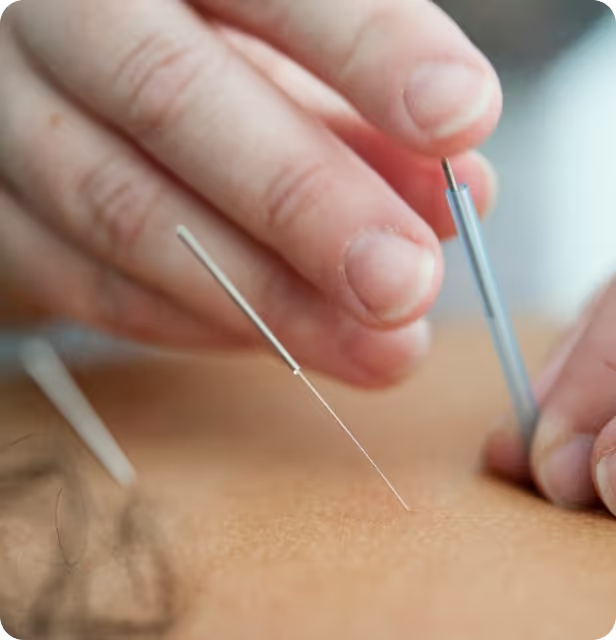Headaches encompass a painful condition that manifests in the head, neck, and scalp, and it's helpful to understand that they are not a standalone medical condition but rather a symptom. The experience of a headache can vary significantly in terms of its severity, duration, and the specific area of the head it affects, and it can be triggered by a variety of underlying causes. Acupuncture, an integral component of Traditional Chinese Medicine (TCM), offers a promising therapeutic approach for addressing this complex issue through personalized treatment.
In the framework of TCM, it is interesting to note that all of the body's vital yang energy pathways converge at the head. Headaches frequently arise from an imbalance between the yin and yang aspects of physiology, potentially leading to an accumulation of heat or an obstruction of the meridians and collaterals that govern the head, neck, and facial regions. The essence of acupuncture therapy lies in its ability to deliver tailored interventions based on an individualized diagnosis, addressing these intricate patterns of discomfort by clearing the obstructions and balancing yin and yang.
When it comes to addressing headaches with acupuncture, there are three basic treatment objectives:
- Pain Relief: Acupuncture aims to provide relief from the often debilitating pain associated with headaches.
- Prevention of Recurring Headaches: Beyond immediate relief, acupuncture can also serve as a preventive measure to reduce the frequency and intensity of recurring headaches.
- Treatment of Disease Patterns According to TCM: Traditional Chinese Medicine (TCM) utilizes acupuncture to treat specific patterns of disease identified through individualized diagnoses.
Headaches come in various forms, each with its own characteristics and triggers, and they include:
- Migraine Headaches: These are known for their severe, throbbing pain, often concentrated on one side of the head. They can be accompanied by symptoms like nausea, vomiting, and sensitivity to light and sound.
- Cluster Headaches: Intense and sharp, these headaches occur in clusters or patterns and are usually localized around one eye, causing excruciating pain.
- Tension Headaches: Described as a dull, aching pain resembling a tight band around the head, tension headaches are often linked to stress, tension, or poor posture.
- Rebound Headaches: These result from the overuse of pain-relief medications such as aspirin, ibuprofen, or prescription drugs.
- Sinus Headaches: Typically caused by sinus infections or congestion, sinus headaches are characterized by pressure and pain in the forehead, cheeks, and nose.
Acupuncture can be applied to address all these types of headaches. The acupuncture meridians and collaterals, combined with the pattern of disease theory, allow acupuncture professionals to select specific points for treatment, tailored to the unique diagnosis of each individual based on TCM medical principles. This versatility makes acupuncture an appealing option for those seeking relief from different headache types, with the added benefit of potential improvements in overall health.
Acupuncture serves a dual role in headache management:
- Active Headache Treatment: It can be employed during an active headache episode to alleviate pain and discomfort.
- Prophylactic Treatment: Acupuncture can also serve as a prophylactic measure to prevent and reduce the occurrence of headaches.
The efficacy of acupuncture as a treatment for headaches has been demonstrated, both in terms of pain relief and prophylactic benefits. It's important to note that the effectiveness of acupuncture can vary depending on the specific type of headache being treated, but it remains a promising and holistic approach for many individuals seeking relief from this common ailment.
Here are a few notable studies on the efficacy of acupuncture for headaches.
Study 1: In this epidemiological study, headache patients reported clinically relevant improvements after receiving acupuncture. Randomized trials performed in parallel to this study confirm the relevant overall effect, however, the effect may largely be due to potent unspecific needling and placebo effects.
Study 2: Acupuncture leads to persisting, clinically relevant benefits for primary care patients with chronic headache, particularly migraine. Expansion of NHS acupuncture services should be considered.
Study 3: Cochrane systematic reviews on acupuncture in migraine and in TTH suggest that acupuncture is an effective and valuable option for patients suffering from migraine or frequent TTH. Moreover, acupuncture seems to be a cost-effective treatment.
Study 4: Among patients with migraine without aura, true acupuncture may be associated with long-term reduction in migraine recurrence compared with sham acupuncture or assigned to a waiting list.
- Melchart, D., Weidenhammer, W., Streng, A., Hoppe, A., Pfaffenrath, V., & Linde, K. (2006). Acupuncture for Chronic Headaches—An Epidemiological Study. Headache: The Journal of Head and Face Pain, 46(4), 632-641. https://doi.org/10.1111/j.1526-4610.2006.00365.x
- Vickers A J, Rees R W, Zollman C E, McCarney R, Smith C M, Ellis N et al. Acupuncture for chronic headache in primary care: large, pragmatic, randomised trial BMJ 2004; 328 :744 doi:10.1136/bmj.38029.421863.EB
- Schiapparelli, P., Allais, G., Rolando, S., Airola, G., Borgogno, P., Terzi, M. G., & Benedetto, C. (2011). Acupuncture in primary headache treatment. Neurological sciences : official journal of the Italian Neurological Society and of the Italian Society of Clinical Neurophysiology, 32 Suppl 1, S15–S18. https://doi.org/10.1007/s10072-011-0548-x
- Zhao L, Chen J, Li Y, et al. The Long-term Effect of Acupuncture for Migraine Prophylaxis: A Randomized Clinical Trial. JAMA Intern Med. 2017;177(4):508–515. doi:10.1001/jamainternmed.2016.937

.avif)

.avif)
.avif)
.avif)





